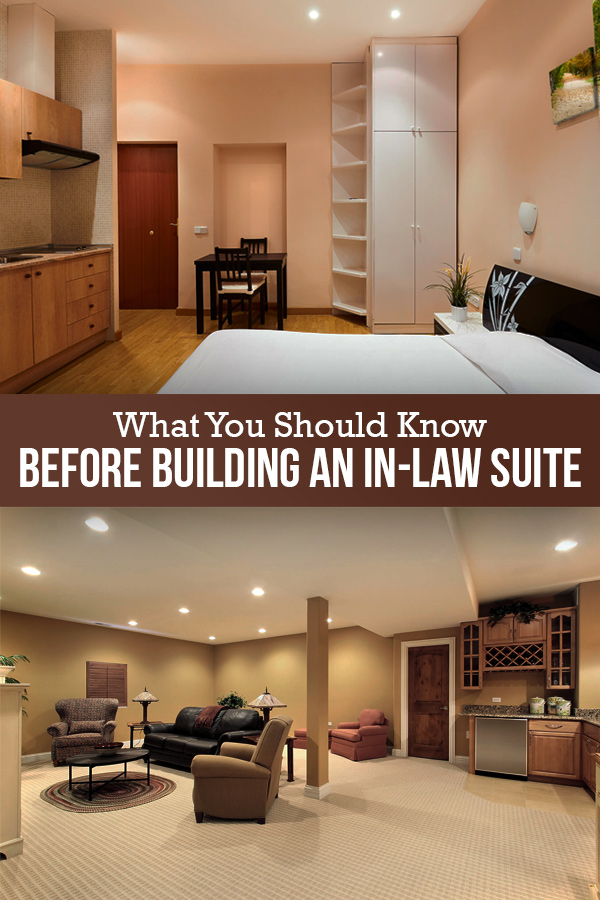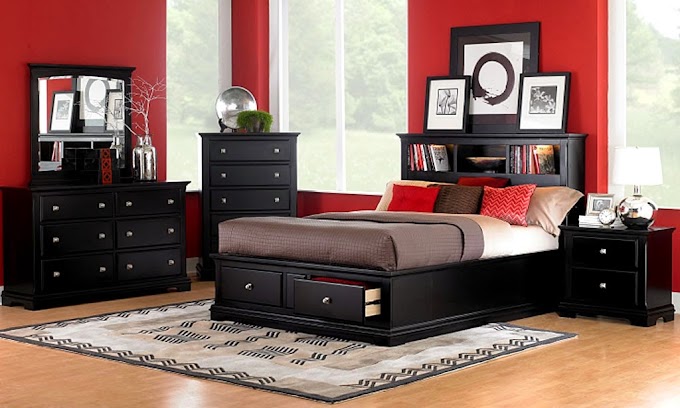1 Bedroom Mother In Law Suite Plans
What You Should Know Before Building an In-Law Suite
10
Approximately 20% of the U.S. population lives in a multi-generational home, meaning three or more generations share the same household. As assisted living costs continue to rise, older Americans are choosing to move in with their children and grandkids. But instead of taking the spare bedroom upstairs, they're moving into their own private in-law suite. An in-law apartment is a private space for in-laws and parents that is usually attached to or located on the same lot as their grown child's house. Many in-law suites are custom-built home additions, though converted garages, basements and stand-alone guest houses are also common. These types of dwellings are also referred to as "mother-in-law" suites or granny apartments. The cost to build an in-law suite varies by the type of space and how much work is needed to make that space livable. Ideally, your in-law suite should include everything needed for independent living, such as a separate bedroom, living area, bathroom and kitchen. Of course, adding all of these elements is expensive, with one financial expert putting the cost of installation somewhere between $40,000 and $125,000. As steep as that may seem, the one-time cost to build an in-law suite pales in comparison to the annual cost of assisted living communities. Genworth's Cost of Care Survey reveals that in the United States, the average cost of a private room in a nursing home is around $105,000 annually. Semi-private rooms weren't much cheaper, averaging out to $93,000 per year. In the long-run, the cost of an in-law suite addition is almost always less than the alternative. And money aside, being surrounded by family is better for your parent's well-being too. Your local building codes will determine what features you can add to an in-law suite. If you're thinking of building an addition, you will usually be limited to a bedroom, bathroom, small kitchen and sitting area. Adding a full kitchen or separating the unit from the main home will require separate permits or may even be banned by local zoning rules that prohibit residential areas from building rentable properties. Other common requirements for in-law apartments include: As with real estate, in-law suites are all about three things: location, location and location. Depending on what's allowed in your city, you could convert your garage, attic, basement or even your porch into a suite. For home additions, the best spot to build off is an underused room on the first floor, ideally located near an existing bathroom. Planning out a simple and efficient design for your in-law apartment is the best way to keep your loved one safe, while also maintaining their independence and privacy. Providing this space in your home's basement is usually the most cost-effective way to add a living space. But, depending on your parent's age and abilities, having a walk-out basement or garage level apartment might be ideal to avoid troubles with stairs. For a comfortable living space, the three key in-law suite rooms to include would be a bedroom, full bathroom and a full kitchen or kitchenette area, if possible. This will give your parent the autonomy to still bathe and cook on their own accord without overlapping with your family's different schedules. Separating your mother-in-law suite's utilities from the main house will allow you to switch them off if the space ever goes unoccupied for a long stretch of time. And if you end up renting the space out to another occupant down the line, you can easily split the bills. Does your new guest have any special needs, such as wheelchair accessibility or grab bars for the bath? Your in-laws probably plan on aging in place once they move in. Be proactive and make sure their new accommodations are made to age with them. This includes installing pull-out drawers, shower seats, adjustable sinks and other appropriate amenities. Read Next: Projects for Aging at Home & Essential Home Remodeling Projects for Accessibility Look for a contractor who has built in-law apartments before and is a certified aging-in-place specialist. Contractors with this designation can be immensely helpful during the building process, providing advice and design ideas to make your in-law suite as functional as possible. The National Association of Home Builders maintains a searchable database of members who have earned their CAPS designation, allowing you to easily find a specialist near you. Looking for other ideas to make the space in your home more livable for guests? Get started with these helpful posts:

What Is an In-Law Suite or Apartment?
How Much Does It Cost to Build an In-Law Suite?

5-Step Planning Checklist for Building a Mother-in-Law Suite
1. Check Your Local Building Codes
2. Find the Right Spot for Your In-Law Apartment
Mother-in-Law Suite Plans

3. Separate the Suite's Utilities From Your Main Home
4. Consider Your Parent's Current and Future Needs
Need to make your home more accessible?
5. Find a Certified Contractor
Discover More Ways to Maximize Living Space in Your Home
1 Bedroom Mother In Law Suite Plans
Source: https://www.budgetdumpster.com/blog/build-an-in-law-suite/


0 Komentar